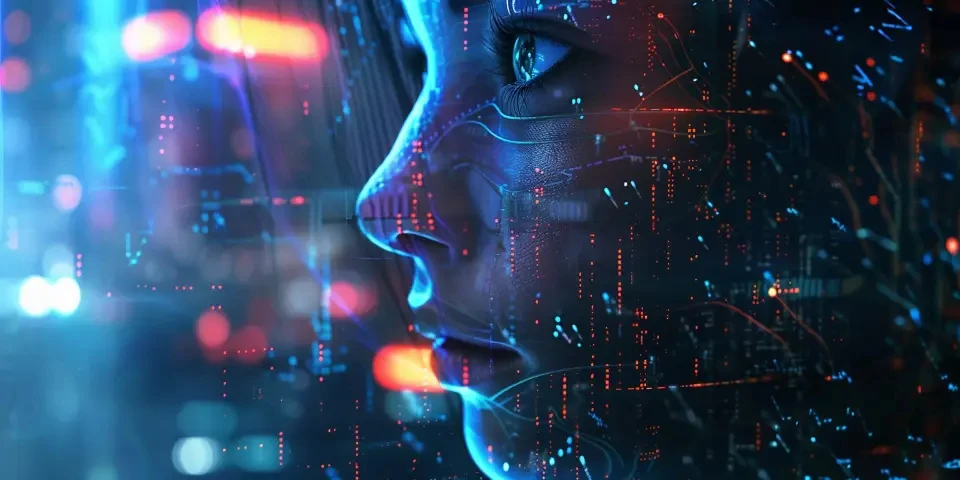The future of work How AI is reshaping industries and job roles
Artificial Intelligence (AI) is revolutionizing industries and transforming job roles across various sectors. As technology continues to advance at an unprecedented pace, businesses are leveraging AI to streamline processes, enhance productivity, and create new opportunities. In this article, we will explore how AI is reshaping industries and job roles, and what the future of work holds in store.
1. Automation and Robotics
AI-powered automation and robotics have the potential to replace repetitive or labor-intensive tasks, leading to increased efficiency and cost savings. From manufacturing to logistics, robots are being utilized to perform tasks that were traditionally carried out by humans. This shift requires reskilling the workforce to focus on more complex and creative roles.

2. Data Analysis and Decision Making
AI algorithms can analyze vast amounts of data quickly and accurately, providing valuable insights for decision-making processes. In sectors such as finance, healthcare, and marketing, AI-powered data analytics enables businesses to make data-driven decisions, optimize strategies, and achieve better outcomes.
3. Customer Service and Support
AI-driven chatbots and virtual assistants are transforming customer service and support. These intelligent systems can handle customer inquiries, provide personalized recommendations, and resolve issues in real-time. They offer 24/7 availability, improved response times, and cost-efficiency, ultimately enhancing the overall customer experience.
4. Cybersecurity and Fraud Detection
As cyber threats continue to evolve, AI plays a crucial role in identifying and mitigating risks. AI algorithms can detect anomalies, analyze patterns, and identify potential cybersecurity breaches. By leveraging AI for fraud detection and prevention, organizations can minimize risks and protect sensitive data more effectively.
5. Healthcare and Medical Research
AI is revolutionizing healthcare by enabling faster and more accurate diagnoses, personalized treatments, and drug development. Machine learning algorithms can analyze medical records, identify patterns, and predict diseases, improving patient outcomes. Additionally, AI-powered robotics is enhancing surgical precision and enabling remote surgeries.
6. Transportation and Autonomous Vehicles
Autonomous vehicles powered by AI are becoming increasingly prevalent in the transportation industry. From self-driving cars to drones, AI algorithms are paving the way for more efficient and safer transportation systems. While autonomous vehicles can reduce human errors and increase road safety, this shift raises concerns about job displacement for drivers.
7. Education and Personalized Learning
AI is reshaping the education sector by enabling personalized learning experiences. Intelligent tutoring systems can adapt to students' needs, provide personalized feedback, and optimize learning trajectories. AI-powered educational platforms also help educators analyze student performance, identify gaps, and tailor instruction accordingly.
8. Human Resources and Talent Acquisition
AI has transformed the hiring process, making it more efficient and objective. AI algorithms can analyze resumes, screen candidates, and identify the most suitable ones for job roles. This streamlines the talent acquisition process, saves time, and eliminates biases. However, concerns about ethical considerations and potential biases within AI systems emerge.
9. Agriculture and Farming
AI-driven technologies are enhancing efficiency and productivity in the agricultural sector. From autonomous farming equipment to AI-powered crop monitoring systems, these advancements help optimize crop yields, reduce waste, and adapt to environmental changes. AI can analyze data on soil and weather conditions to improve resource allocation and crop management.
10. Creativity and Content Generation
While AI has been predominantly associated with automation, it is also impacting creative industries. AI algorithms can generate content, such as news articles, music, and art. This technology opens up new possibilities and challenges the boundaries of creativity. However, concerns about copyright, originality, and the human touch persist.
Conclusion
The rise of AI is transforming industries and job roles, creating a future where humans and machines collaborate to achieve greater efficiency and innovation. While AI presents incredible opportunities for businesses and individuals, it also raises concerns about job displacement and ethical considerations. As we continue to navigate this evolving landscape, it is essential to embrace AI's potential while ensuring its responsible and ethical implementation.
Frequently Asked Questions
1. Will AI replace all jobs in the future?
While AI may automate certain tasks, it is unlikely to replace all jobs entirely. AI will redefine and transform job roles, requiring humans to focus on more complex and creative tasks. It is crucial to adapt and acquire the necessary skills to thrive in the future workplace.
2. Can AI make unbiased decisions?
AI systems are only as unbiased as the data on which they are trained. Bias can be unintentionally introduced through the data used to train AI algorithms, creating potential ethical concerns. Constant monitoring, transparency, and diverse datasets are essential to minimize bias and ensure ethical decision-making by AI systems.
3. How can individuals prepare for the future of work?
To prepare for the future of work, individuals should focus on developing skills that are difficult to replicate by AI, such as creativity, critical thinking, and emotional intelligence. Lifelong learning, adaptability, and embracing technology will be crucial to remain relevant in a rapidly changing job market.
References:
1. Future of Work: AI, Robotics, and Automation. (n.d.). World Economic Forum. Retrieved from https://www.weforum.org/whitepapers/shaping-the-future-of-work-and-production 2. AI and Robotics in the Workplace. (2021). OECD. Retrieved from https://www.oecd.org/going-digital/ai-and-robotics-in-the-workplace-35391354-en.htm 3. AI in the Workplace: Transforming Workforce Structure, Roles, and Culture. (2020). Deloitte. Retrieved from https://www2.deloitte.com/global/en/pages/human-capital/articles/ai-in-the-workplace.html
Explore your companion in WeMate